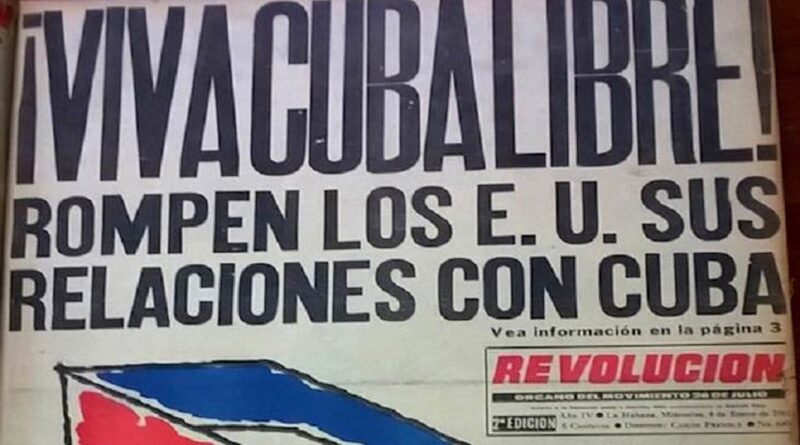Cuba-US relations 62 years after a rupture
More than six decades later and in a different context, another Republican left the scenario of relations between Washington and Havana quite complicated for his Democratic successor.
The path of mutual collaboration opened with the reestablishment of diplomatic ties in 2015 was interrupted during the administration of Donald Trump (2017-2021), who in addition to applying with full rigor the economic, commercial and financial blockade against the island, approved another 243 coercive measures.
Those provisions are intended to broaden and deepen the policy of economic choke and persecution of the financial resources of the Caribbean nation, a legacy that came into the hands of the current president, Joseph Biden, who, except for slight adjustments, has continued implementing them.
Last December 29, Cuban Foreign Minister Bruno Rodriguez denounced that the United States maintains the policy of maximum pressure initiated by Trump, which includes destabilizing actions and disinformation operations, in an attempt to blame Cuba for the impact of the ‘inhumane and abusive’ measures the White House enforces.
The arbitrary inclusion of the island in the list of States that allegedly sponsor terrorism, which sets up hurdles for Havana to carry out financial and commercial transactions, as well as depriving it of payments and credits, is a sample of the US hostility and the damage it causes to Cuban families.
As Rodriguez pointed out, Washington’s actions are rejected by the international community, which last November voted for the thirtieth consecutive time in favor of the lifting of the blockade.
Cuban authorities rather prefer to go back to the agreements and memorandums signed since 2015, which allowed a respectful and civilized diplomatic understanding, and involved sectors of science, environment and culture.
Cuba and the United States, in addition to being geographic neighbors, have historical and cultural ties, as well as common interests, so a relationship based on respect and cooperation opens up enormous possibilities for progress in many areas.
(Taken from Prensa Latina)


